Alec Cowan
Producer, Soundside
About
Alec Cowan is a producer for Soundside. His interests have brought many eclectic stories to the program, and his segments gravitate toward history, technology, arts and culture, and the environment. Proud to be KUOW's unofficial "boat guy."
Prior to joining Soundside, Alec wore many hats at KUOW. He was a producer for The Record with Bill Radke and Primed seasons two and three . He also reported an episode of SoundQs detailing how prohibition forever changed Seattle policing and assisted with reporting a breakthrough cold case solved with the use of genetic genealogy.
Before joining KUOW Alec worked in NPR's Story Lab, where he helped pilot the Louder Than a Riot podcast, about hip-hop and mass incarceration, and assisted in producing a story on volunteerism in Iraq for Rough Translation. Originally from Grand Junction, Colorado, his roots in the Northwest begin in Eugene, where he studied English and philosophy at the University of Oregon and worked as a news reporter for NPR member station KLCC. He is likely neglecting his saxophone, growing book collection, and expanding personal project list in favor of boosting his online Xbox ranking.
Location: Seattle
Languages Spoken: English
Pronouns: he/him/his
Podcasts
Stories
-

Environment
Hear it Again: Roads devastated our ecosystems. But they might also save them
There’s something so romantic about roads, if you’re a human. Nature might have something else to say about them. While connecting people and communities, roads have rerouted centuries-old migration routes. Roads grant us access to some of the most scenic corners of the planet, and at the same time, offer access to their destruction.
-
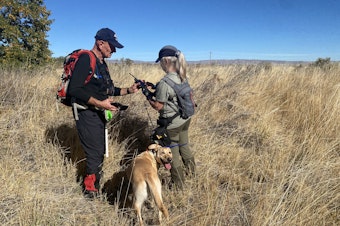
Government
With dogs and radar, volunteers search for remains at Mool-Mool, or Fort Simcoe State Park
Since time immemorial, Native Tribes in the Columbia Basin met at a village crossroads called Mool-Mool. In the wake of the Yakama Treaty of 1855, the site was of continual use as a U.S. military outpost, and for decades, the grounds included a boarding school operated by the Bureau of Indian Affairs, where children from the Yakama Nation were forced to attend. Today, volunteers and Yakama descendants are searching the 200-acre park for their relatives' remains.
-

Science
Local explorers believe they've found Puget Sound's deadliest shipwreck
In 1906, the Steamship Dix was shuttling passengers from Colman Dock to Port Blakely when it crossed the path of the SS Jeanie. After the SS Jeanie rolled the SS Dix, the latter's passengers scrambled for safety, with dozens tragically sinking aboard the vessel. More than 100 years later, local shipwreck enthusiasts believe they've found the steamer's resting place in Elliott Bay.
-
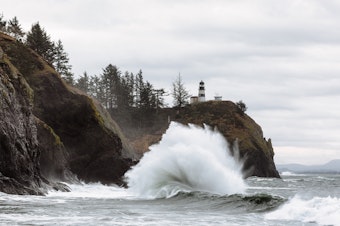
Government
A career of dangerous rescues on Washington's 'Graveyard of the Pacific'
Just outside Ilwaco, Washington, is the nation’s largest and busiest coast guard unit. This stretch of coast, known as the “Graveyard of the Pacific,” is one of the most dangerous waterways to navigate in the U.S.
-
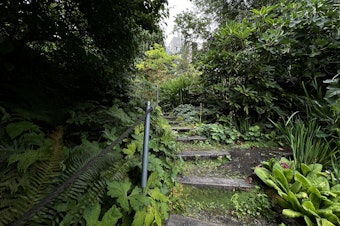
Arts & Life
The love story that grew Seattle's 'secret garden'
Since 1972, the Streissguth Gardens have become one of Seattle’s most unique landmarks. The gardens take up a full acre of hillside just west of Capitol Hill’s Volunteer Park. If you’ve spent a morning running up the long Blaine Street Stairs, you’ve passed right by the gardens. But the story of how this unorthodox public garden came to be is one of coincidence, love, and perhaps a bit of magic.
-
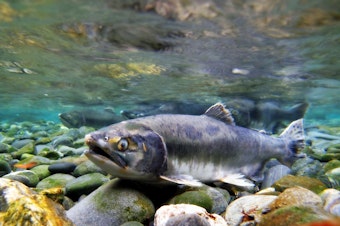
Environment
EPA sides with tribes on petition to regulate toxic tire chemical that kills salmon
6PPD has been in use for decades as a kind of bonding agent that prevents cracking and general wear and tear in tires. When the surface of the tire reacts with ozone or oxygen, it turns into a new compound called 6PPD-Quinone, which is toxic to aquatic life like coho salmon.
-

Government
The Snohomish County Sheriff's race is breaking fundraising records. Who are the candidates?
In many counties across Washington, sheriffs are nonpartisan, at times running unopposed. But this year’s election in Snohomish County is different. Bothell Deputy Chief of Police Susanna Johnson, who is currently leading with 52% of the vote, is running against incumbent Sheriff Adam Fortney, who so far has garnered 47% of votes.
-

Environment
Despite opposition, feds approve increased gas flow through Eastern Washington pipeline
A federal commission has approved a pipeline project to increase the flow of Canadian natural gas through the Pacific Northwest and California, despite opposition from from state officials, federal lawmakers, and Native American tribes.
-
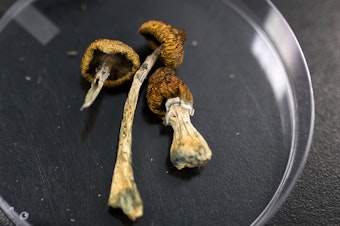
Food
Following near disaster for Alaska Airlines, concern over 'magic mushrooms' grows
After passing over Astoria, OR earlier this month, passengers on an Alaska Airlines flight from Everett to San Francisco were told their flight was being diverted. According to court documents, an off-duty pilot attempted to pull a fire suppression lever, which would have effectively turned the plane into a glider. He later told police that his mental health had been declining for months, he was dehydrated and sleep-deprived. He also said he’d taken psychedelic mushrooms 48 hours prior to the flight.
-

Environment
Scientists hope new research linking polar bear deaths and climate change will help protect arctic wildlife
For 15 years, a federal standard has prevented regulators from considering planet-warming emissions when enforcing the Endangered Species Act, a federal law aimed at protecting species at risk of extinction. But now, researchers at the University of Washington and Polar Bears International believe they’ve found a way to close that loophole. It's a finding that they hope will actually protect polar bears — the poster children for climate change — for real this time.
